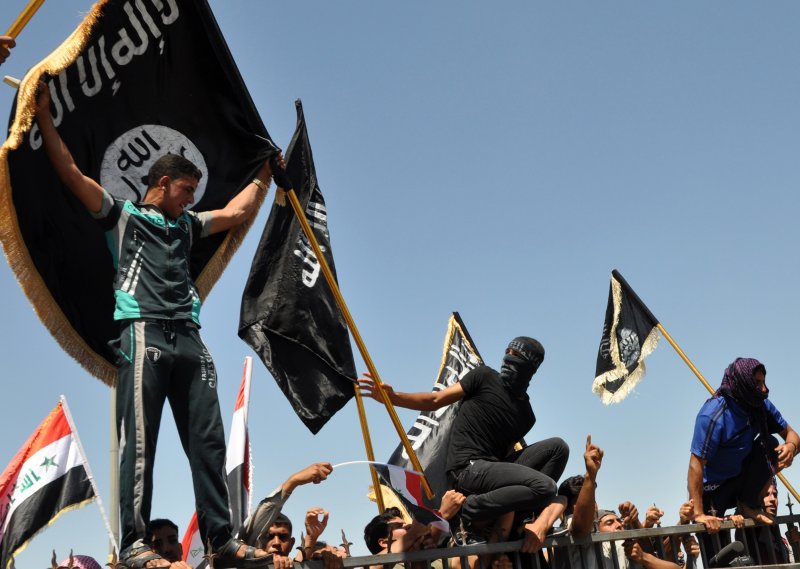Lebanon bid farewell on Monday afternoon to legendary singer Wadih al-Safi in a popular mass held at St. George Cathedral in downtown Beirut. Several officials and music figures attended the funeral while Maronite Patriarch Beshara al-Rahi presided over the mass. "We are aware of the vacuum Wadih al-Safi will leave behind him and the deep […]
Eid el-Adha Mubarak to all of our Muslims friends from khazen.org
His was the first Catholic sermon I could assimilate and the first communion I received. We learned his Christian hymns by heart as Jesuit nuns played them on portable turntables over and over in catechism class. I am one of thousands who grew up on the multifaceted teachings of a young man named Mansour Labaki. […]
An extremist group is ruffling feathers, including those of its Islamist peers.
THE civil war in Syria, a nightmare for most Syrians, is a dream come true for the Islamic State of Iraq and al-Sham (ISIS), the latter name being variously translated as "Greater Syria" or "the Levant". The extremist group, formed in Iraq in 2006 as a broad jihadist front that includes al-Qaeda in Iraq, has had its best year to date for expansion. In Syria it runs a clutch of towns, taking it a step closer to its goal of creating a limitless Islamic caliphate. In Iraq its campaign of bombing against Shia Muslims, whom it considers heretics, and of assassinations of its opponents, has reached a new pitch of fury.
Syria’s power vacuum has given it an ideal base. Since expanding into the country in April, ISIS has spread across the northern and eastern provinces abutting Iraq and Turkey to include thousands of fighters on both sides of the border. Its foreign leadership is experienced, its footmen, foreign and Syrian, well-trained and disciplined. Its control of Syria’s oilfields has added wealth to the funds it gets from donors in the Gulf. It has sought to increase its popularity by providing services, such as supplying bread, and activities including Koranic classes for children.
But the group has ruffled feathers by becoming increasingly aggressive. It is fighting to control the border between Syria and Turkey. Last month it kicked out Northern Storm, a local rebel force, from Azaz, a staging post north of the Syrian city of Aleppo. Another border town under its control has been renamed the "emirate of Jarablus", complete with a religious school and posters extolling the virtue of the full veil for women.
On Saturday afternoon, members of the veteran community gathered at Litchfield’s Every War Memorial for a chance to honor the soldiers killed in Beirut in 1983. On Oct. 23, 1983, two truck bombs struck barracks housing U.S. and French troops who were in Beirut on a peacekeeping mission during the Lebanese Civil War. The Connecticut […]
The family of Monsignor Mansour Labaki urged on Saturday Christian figures in the country to intervene with high authorities at the Vatican to allow an appeal in the case of the Maronite father. Labaki was charged by the Congregation for the Doctrine of the Faith at the Vatican with sexually abusing several minors, LBCI television […]
His family explained that he would be buried in Niha “so that his grave will serve as a cultural landmark for all Lebanese and all his admirers throughout the world.” The funeral is set to be held at St. Georges church in downtown Beirut on Monday. […]
Turn to your manual of realpolitik, dear reader, and contrast two very different forms of political behavior. The United States decides to cut military assistance to Egypt because it is displeased with the slow pace of democratization after the coup against President Mohamed Morsi. But then, off the record, officials characterize this as “temporary,” and […]
Renowned Lebanese singer Wadih al-Safi has passed away today at the age of 92.




